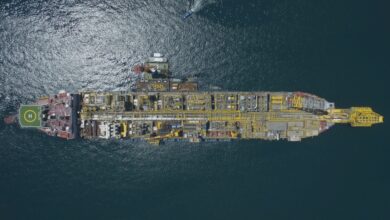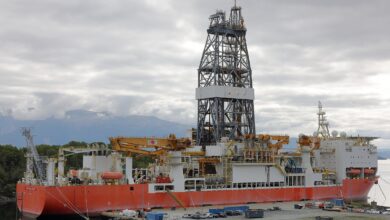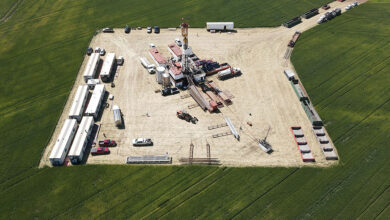Shell keynote: To maintain license to operate, industry must improve performance, accelerate learning
By Linda Hsieh, managing editor

Making a case for change in the industry, Royal Dutch Shell executive VP of safety and environment Kieron McFadyen is urging the drilling sector to learn from other parts of the oil and gas business to improve safety performance and to accelerate that learning, noting that a failure to operate assets responsibly will lead to a challenge and perhaps loss of industry’s license to operate. “Our failure to run our kit responsibly will put our future at risk,” Mr McFadyen said in his keynote address at the 2012 IADC Drilling HSE Europe Conference in Amsterdam on 26 September. “There is a fundamental need for us to improve our performance. We need to raise our game.”
Sharing some of the lessons Shell has learned from incidents in recent years, Mr McFadyen looked first at the 2005 Texas City incident, noting it was “a watershed moment” that led to the implementation of mandatory process safety requirements in Shell’s operating and technical design standards. “We put tens of thousands of people through risk awareness training. That’s obviously something we continue to do everyday. We also set up a cross-business process safety discipline team to ensure the proper professional development of our people in this area across the company,” he said.
Further, to drive compliance against the mandatory process safety standards, a dedicated process safety assurance group was set up, with their findings routinely and directly reported to the executive team and board, Mr McFadyen explained.
Significant lessons were learned and actions taken after the 2010 Macondo tragedy as well, he continued, explaining that Shell’s Wells group performed a wide-ranging review of safety technology platforms, including subsea well annulus monitoring, the use of dual shear rams and the use of collapsible casing downhole. “We also looked to casing and tripping design standards, as well as a global wells management system to ensure that we were consistently managing our operations in line with standards across our global operations,” he said. The company also enhanced its process of investigating and learning from incidents and boosted the profile of single barrier failures internally. “How often every day do we lose a barrier? That is reported real time in Shell.”
He added: “We also continue to put emphasis on people being our most important safety barrier from a process safety point of view.”
In fact, Mr McFadyen believes that improvement with process safety should start with self-reflection. “I think we need to look at ourselves and ask ourselves how do we role-model in this regard. As leaders, questions for me are, do I spend sufficient time in the field? … Am I visible? Do I focus my attention on the key risks? … Do I give an atmosphere of openness which allows ongoing dialogue and intervention?”
On an industry level, he believes that collaboration will be a key driver for future improvement, and it’s up to the industry to go out there and engage. “I still think that key stakeholders in governments and in societies that we operate have a poor understanding of who we are and what we do. I worry about that. To me, that’s something that we need to change. I think we need to be far more joined up and proactive in our engagement with regulators, governments and indeed society,” he said.
Going forward, good operating and engineering standards will be key to maintaining industry’s license to operate, Mr McFadyen stressed, and those standards must straddle the whole business chain. “At the end of the day, we’re as strong as the weakest link, so we all need to be strong, and collaboration is quite fundamental.”




